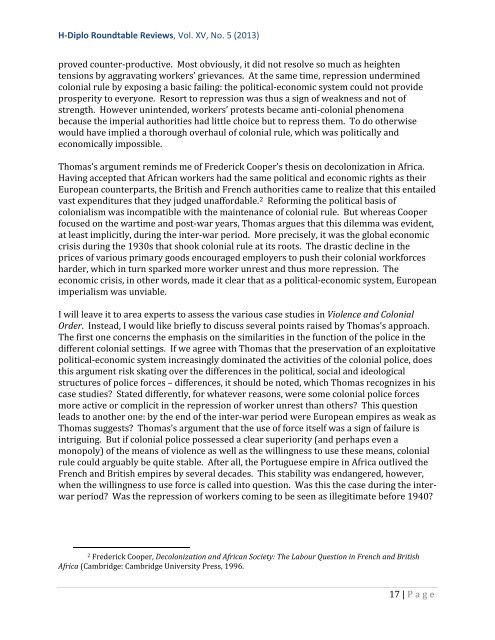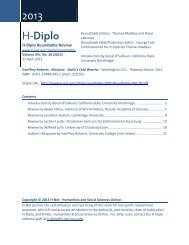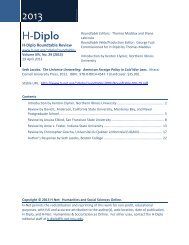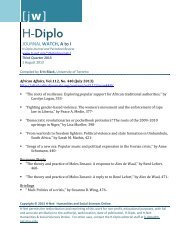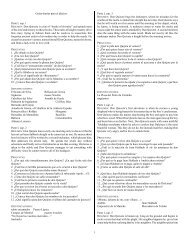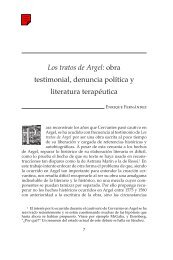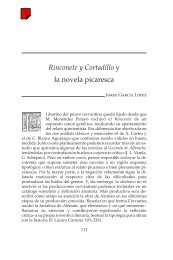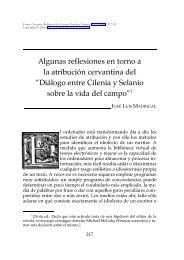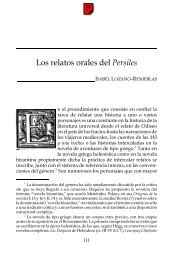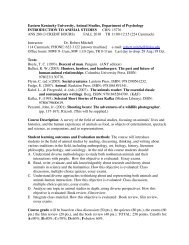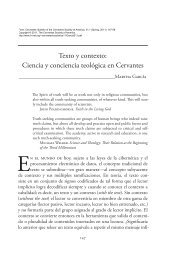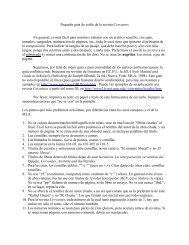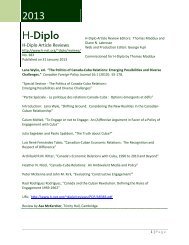H-Diplo Roundtable on Martin Thomas. Violence and ... - H-Net
H-Diplo Roundtable on Martin Thomas. Violence and ... - H-Net
H-Diplo Roundtable on Martin Thomas. Violence and ... - H-Net
You also want an ePaper? Increase the reach of your titles
YUMPU automatically turns print PDFs into web optimized ePapers that Google loves.
H-<str<strong>on</strong>g>Diplo</str<strong>on</strong>g> <str<strong>on</strong>g>Roundtable</str<strong>on</strong>g> Reviews, Vol. XV, No. 5 (2013)<br />
proved counter-productive. Most obviously, it did not resolve so much as heighten<br />
tensi<strong>on</strong>s by aggravating workers’ grievances. At the same time, repressi<strong>on</strong> undermined<br />
col<strong>on</strong>ial rule by exposing a basic failing: the political-ec<strong>on</strong>omic system could not provide<br />
prosperity to every<strong>on</strong>e. Resort to repressi<strong>on</strong> was thus a sign of weakness <strong>and</strong> not of<br />
strength. However unintended, workers’ protests became anti-col<strong>on</strong>ial phenomena<br />
because the imperial authorities had little choice but to repress them. To do otherwise<br />
would have implied a thorough overhaul of col<strong>on</strong>ial rule, which was politically <strong>and</strong><br />
ec<strong>on</strong>omically impossible.<br />
<strong>Thomas</strong>’s argument reminds me of Frederick Cooper’s thesis <strong>on</strong> decol<strong>on</strong>izati<strong>on</strong> in Africa.<br />
Having accepted that African workers had the same political <strong>and</strong> ec<strong>on</strong>omic rights as their<br />
European counterparts, the British <strong>and</strong> French authorities came to realize that this entailed<br />
vast expenditures that they judged unaffordable. 2 Reforming the political basis of<br />
col<strong>on</strong>ialism was incompatible with the maintenance of col<strong>on</strong>ial rule. But whereas Cooper<br />
focused <strong>on</strong> the wartime <strong>and</strong> post-war years, <strong>Thomas</strong> argues that this dilemma was evident,<br />
at least implicitly, during the inter-war period. More precisely, it was the global ec<strong>on</strong>omic<br />
crisis during the 1930s that shook col<strong>on</strong>ial rule at its roots. The drastic decline in the<br />
prices of various primary goods encouraged employers to push their col<strong>on</strong>ial workforces<br />
harder, which in turn sparked more worker unrest <strong>and</strong> thus more repressi<strong>on</strong>. The<br />
ec<strong>on</strong>omic crisis, in other words, made it clear that as a political-ec<strong>on</strong>omic system, European<br />
imperialism was unviable.<br />
I will leave it to area experts to assess the various case studies in <strong>Violence</strong> <strong>and</strong> Col<strong>on</strong>ial<br />
Order. Instead, I would like briefly to discuss several points raised by <strong>Thomas</strong>’s approach.<br />
The first <strong>on</strong>e c<strong>on</strong>cerns the emphasis <strong>on</strong> the similarities in the functi<strong>on</strong> of the police in the<br />
different col<strong>on</strong>ial settings. If we agree with <strong>Thomas</strong> that the preservati<strong>on</strong> of an exploitative<br />
political-ec<strong>on</strong>omic system increasingly dominated the activities of the col<strong>on</strong>ial police, does<br />
this argument risk skating over the differences in the political, social <strong>and</strong> ideological<br />
structures of police forces – differences, it should be noted, which <strong>Thomas</strong> recognizes in his<br />
case studies? Stated differently, for whatever reas<strong>on</strong>s, were some col<strong>on</strong>ial police forces<br />
more active or complicit in the repressi<strong>on</strong> of worker unrest than others? This questi<strong>on</strong><br />
leads to another <strong>on</strong>e: by the end of the inter-war period were European empires as weak as<br />
<strong>Thomas</strong> suggests? <strong>Thomas</strong>’s argument that the use of force itself was a sign of failure is<br />
intriguing. But if col<strong>on</strong>ial police possessed a clear superiority (<strong>and</strong> perhaps even a<br />
m<strong>on</strong>opoly) of the means of violence as well as the willingness to use these means, col<strong>on</strong>ial<br />
rule could arguably be quite stable. After all, the Portuguese empire in Africa outlived the<br />
French <strong>and</strong> British empires by several decades. This stability was endangered, however,<br />
when the willingness to use force is called into questi<strong>on</strong>. Was this the case during the interwar<br />
period? Was the repressi<strong>on</strong> of workers coming to be seen as illegitimate before 1940?<br />
2 Frederick Cooper, Decol<strong>on</strong>izati<strong>on</strong> <strong>and</strong> African Society: The Labour Questi<strong>on</strong> in French <strong>and</strong> British<br />
Africa (Cambridge: Cambridge University Press, 1996.<br />
17 | P age


